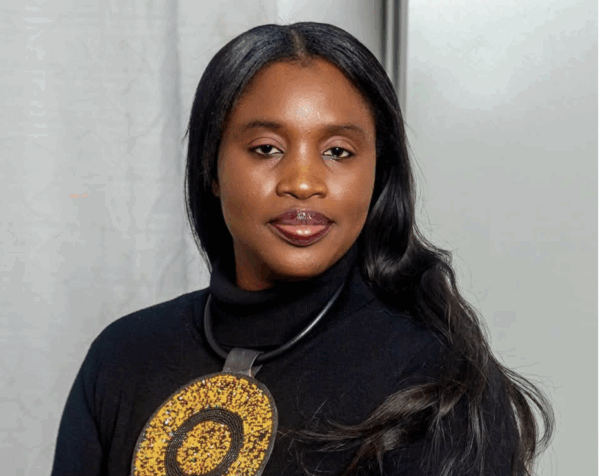By Mame Diarra Ndiaye Sobel, Executive Director, Agenda Africa
The 4th International Conference on Financing for Development (FfD4), opened in Seville on June 30, 2025, was supposed to be a decisive moment: a platform aimed at revitalizing the Sustainable Development Goals (SDGs) and correcting the asymmetries of a global financial order on its last legs. However, as official interventions and high-level panels unfolded, a sense of unreality settled in: that of a global theater where words are strong, diagnoses repeated… but actions continuously postponed.
And this sounds like admissions of incapacity that are part of a cycle of predictable failures.
Recent history is indeed full of global plans meant to change the game for Southern countries: from the Millennium Development Goals (MDGs) to the SDGs, through the promises of the Monterrey Consensus or the numerous reports of the G20 and the Bretton Woods institutions. All have failed to address the essential: the structural transformation of African economies and their full financial sovereignty. The 2030 Agenda, which was supposed to be a universal compass, is now bogged down in the quicksand of a multilateral system unable to reform itself.
Why should we still expect a miracle from a stagnant system in the face of recycled crises?
The speech of the United Nations Secretary-General did try to sound the alarm by calling for “course correction,” “honoring tax justice,” and “reducing the costs of capital.” If only this verbal commitment could translate into actions!
In any case, the IMF has mentioned the restructuring of “unsustainable” debts, and its Managing Director has highlighted the threat of a “systemic debt crisis.”
But on the ground, there are few concrete signs of a political will to end the dogmas of austerity or renegotiate the biased rules of the global economic order. Africa is thus facing a multilateral mirage. But who benefits from the status quo?
For Africa, FfD4 runs the risk of being just another summit among many, where the continent’s grievances are noted while maintaining mechanisms that weaken it: massive resource outflows through illicit financial flows, structural indebtedness, trade imbalances, monetary domination, exclusion from decision-making bodies, etc. Faced with this spiral of organized powerlessness, Africa must stop waiting.
“Who is helping who?” or rather, “Who owes who?” to borrow the words of our colleagues.
As highlighted in the impactful report “Who Owes Who?” published by ActionAid, it is actually the countries of the South that subsidize the economies of the North, through a hemorrhage of resources, unjustified debt interests, and a deeply inequitable global tax system. Far from being aid beneficiaries, African countries are the moral and economic creditors of a system that deprives them of their wealth.
Let us return home and work tirelessly for a clear break, anchored in African realities. The following actions could mark the beginning of a great new era:
1. Put an end to multilateral waiting
Africa can no longer wait for external reform. It is urgent to create a pan-African framework for reflection and action, based on Agenda 2063, to develop and lead our own development mechanisms.
2. Declare the unsustainability of current debt
The burden of debt is a real bottleneck, fueled by unfair interest rates, unfavorable currency fluctuations, and conditionalities disconnected from African priorities.
3. Immediately proceed with debt conversion
A substantial portion of the debt must be redirected towards basic social services (education, health, access to water, housing, economic empowerment). This is about restoring the dignity of populations and laying the foundations for social and economic sovereignty, essential for building strong states.
4. Mobilize domestic resources
Implement ambitious tax reforms, combat illicit financial flows, expand the tax base fairly and inclusively, and promote a new social contract.
5. Strengthen African and South-South solidarity
Make the AfCFTA (African Continental Free Trade Area) a concrete reality, support the free movement of goods, services, and people, and build a common African strategy for international cooperation, with the African Union as the continent’s unique spokesperson.
6. Ensure asset recovery and global tax justice
End the impunity of financial criminals and demand binding international mechanisms for transparency and the restitution of stolen assets.
In short, we have only two options: dare to take responsibility or continue to endure the status quo.
Let us have the audacity to build our own future, with the sacrifices and crises that it will entail. After all, one cannot make omelets without breaking eggs.
FfD4, which could have been a turning point, risks becoming a footnote. As several civil society organizations gathered in a side event have emphasized: “Debt is not the problem of somebody else, but our own problem.”
It is time for Africa to fully embrace this reality and develop a long-term vision, anchored in transparency, solidarity, good governance, and accountability.
The time for declarations is over; the time for African sovereign action begins now/
About Mame Diarra Ndiaye Sobel
Mame Diarra Ndiaye Sobel is a pan-African activist committed to social justice, human rights, and the empowerment of women and girls. A graduate of several institutions in Canada, the United States, France, and Senegal, she is the founder of the NGO Solidarité Active, which works through economic inclusion and education programs. With over 15 years of experience in international institutions, she now leads Agenda Africa, an organization specializing in development finance and inclusive governance in West Africa.


